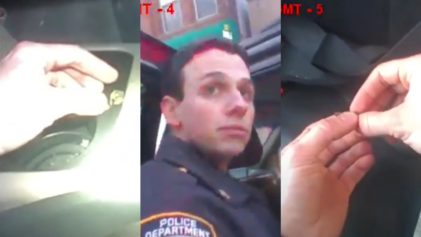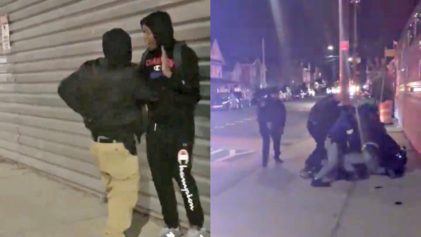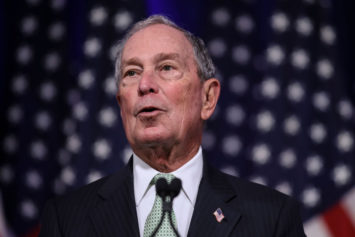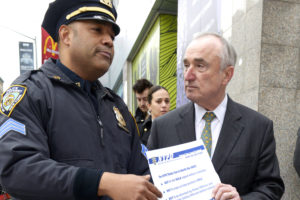
And then there are times when irony is delivered like an iron clad fist to the gut and is followed by a chorus of head shaking, head scratching and eyebrow raising that underscores a situation’s depth of ridiculousness.
So is the case with New York police commissioner Bill Bratton complaining that it is incredibly difficult to hire more Black officers because so many Black men have criminal records.
“We have a significant population gap among African American males because so many of them have spent time in jail and, as such, we can’t hire them,” Bratton told The Guardian.
The NYPD has been increasing efforts to diversify its force but finding Black candidates that want to join the force and have a clean criminal background is proving to be quite the challenge.
This should come as no surprise as countless studies, reports, statistics and expert opinions have cited that the criminal justice system is built in a manner that disproportionately targets Black citizens.
But the ironic cherry on top comes with the fact that it’s Bratton’s own policies that have helped contribute to the mass incarceration of Black men in New York, therefore, significantly reducing the size of his Black applicant pool for new officers.
While Bratton isn’t the creator of the broken windows policy nor is he the only police chief to support it, he has been one of the most prominent proponents of the controversial policing strategy.
Broken windows policing is a strategy that places a great focus on enforcing low-level crimes in order to stop would-be serious offenders from committing more dangerous, violent crimes in the future. It’s a theory that has been under much scrutiny and has failed to be backed by any solid evidence proving its effectiveness.
Broken windows policing has been blamed for the tragic encounter that would end in the death of Staten Island father Eric Garner after officers approached him for allegedly selling untaxed cigarettes.
But Bratton is pointing fingers at the stop-and-frisk policy for the disproportionately high numbers of Black citizens being arrested and jailed in New York.
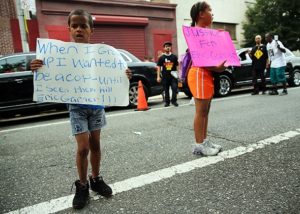
Bratton has been hailed in the past for helping to reduce the use of such discriminatory stop-and-frisk policies that earned the ire of a federal judge who slammed the practice in 2013 as “a policy of indirect racial profiling.”
But while reducing the use of stop-and-frisk policing was a key step in criminal justice reformation, it wasn’t enough to do away with all the policies that too often leave Black people being incarcerated at much greater rates than their white counterparts.
“Stop-and-frisk was not the heart of the problem,” Robert Gangi, the director of the New York City-based Police Reform Organizing Project said, according to The Guardian. “Stop-and-frisk was the symptom of blatantly racist policing, known as broken windows.”
But Bratton has no plans to get rid of broken windows policing any time soon.
“We will continue our focus on crime and disorder,” Bratton told The Guardian back in May when confronted about the controversial strategy. “I make no apologies for doing that.”
But Gangi believes the NYPD will continue to struggle to find Black recruits until such policies are changed.
“We’re certain the disfavor and the antagonism in the Black community toward the police is a principal factor in why so few Black men want to become police officers,” Gangi added.
So if Bratton really wants to solve his dilemma regarding the lack of Black recruits for the NYPD, he may first need to address the state’s murky past of racial profiling being carried out through racially biased policies and police strategies that he has helped implement.
